Stree Swabhiman: The silent revolution driving women empowerment in rural India
Until a few years ago, it was nearly impossible to even talk about menstrual health and hygiene in rural areas of India. A vital health-related issue concerning all women remained ignored due to social and cultural inhibitions. Apart from awareness, accessibility and affordability of sanitary pads remained a major challenge in rural India.
Things are rapidly improving due to a unique initiative called Stree Swabhiman taken by the Common Service Centers, a special-purpose vehicle under the Ministry of Electronics and Information Technology, Government of India. Initiated around March 2018, the vast network of three lakh Common Services Centers that provide digital services to people and are working in more than two lakh gram panchayats as well as in many towns of India, decided to set up micro sanitary pad manufacturing units.
With no prior budgetary allocation for this novel initiative, the Common Services Centers decided to tap the potential of the digital entrepreneurs who worked in these centres. Each Common Services Center provided assistance in setting up sanitary pad manufacturing units to those entrepreneurs who volunteered. Many of these digital entrepreneurs, also known as village-level entrepreneurs or VLEs, came forward and persuaded local women in their villages, starting micro sanitary pad manufacturing units. These women who manufactured sanitary pads also worked as sales persons for their products.
They reached out to all the potential buyers of sanitary pads in their villages and explained various aspects of menstrual health and hygiene. This initiative got immense support from the highest levels in the Government of India when the Union Minister for Electronics and IT Ravi Shankar Prasad not only encouraged it but also set a ambitious goal of setting up at least one sanitary pad manufacturing unit in each of the 6,000 blocks of India. In a short span of few months, 207 sanitary pad manufacturing units have become operational, and 60 more units are likely to start soon.
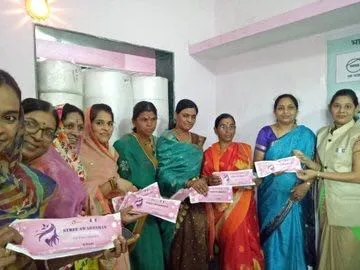
Mamta Sarda, who is a village-level entrepreneur of a Common Service Center and has started a sanitary pad manufacturing unit in her village in Maharasthra, happily tweets in Hindi written with Roman script that student admission in the local Zila Parishad school has gone up because more girls have decided to come to school as they now get sanitary pads in their school itself. Mamta Sarda manufactures these sanitary pads in her unit.
Snehlata, who has been running her Common Services Center in Bansur village of Alwar for the past few years, has also started a sanitary pad manufacturing unit in her village. Apart from reaching out to girls and women in her village, she is also doing the extraordinary work of educating women in the nomadic Banjara tribes about menstrual health and offering low-cost sanitary pads to them.
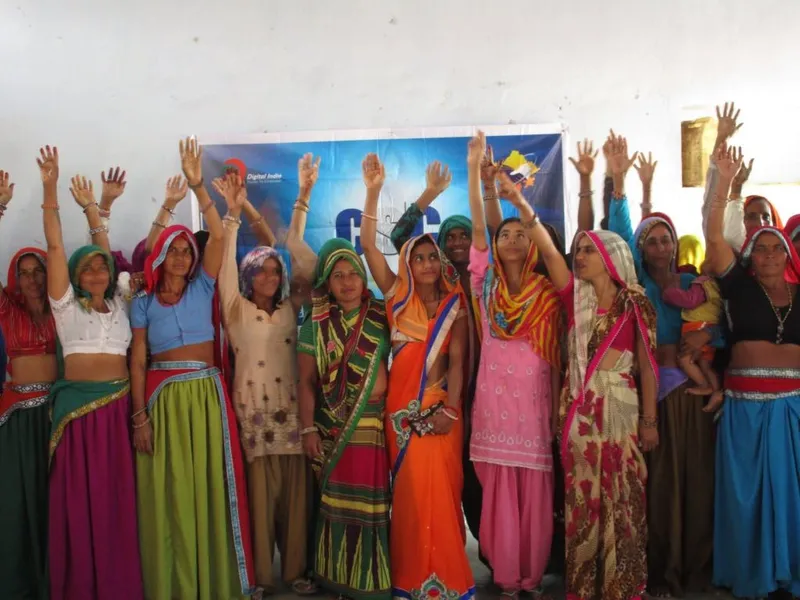
Om Kumar Pandey from Ranchi and his wife are working hard to create awareness about menstrual health and distributing sanitary pads among women and adolescent girls in their area.
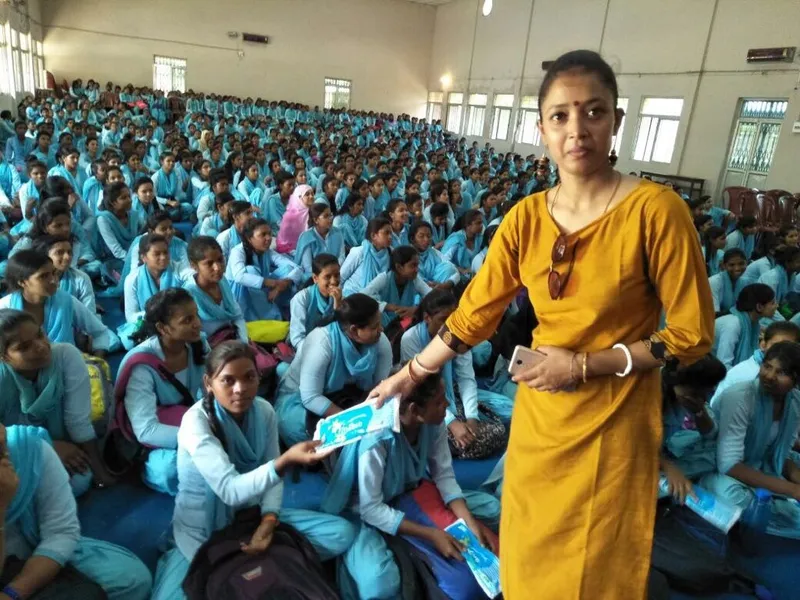
Nafeesa from Sahibganj district of Jharkhand has also benefitted from Stree Swabhiman initiative of the Government of India. She has been reaching out to nearby local girls’ schools and distributing sanitary pads to young girls.
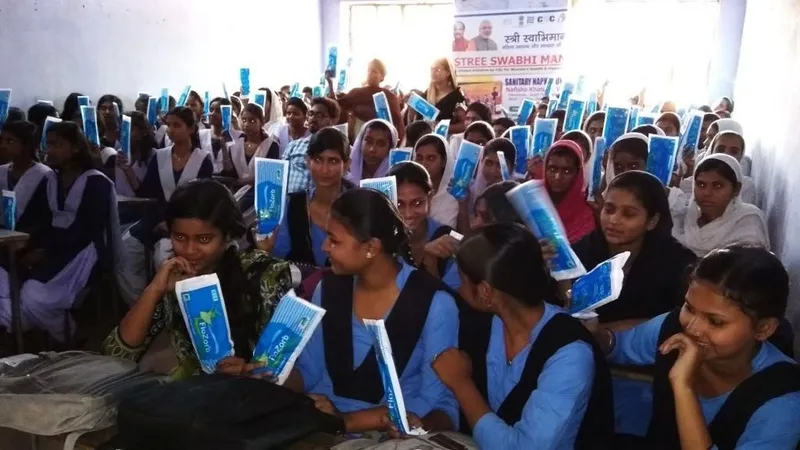
Mohammad Saad Patel, who runs a Common Service Center in Bharuch district of Gujarat, has started a micro unit for manufacturing sanitary pads. He has reached out to the girls in the nearby school and told them about the importance of hygiene during the menstrual period. Today all the girls in the school are using hygienic sanitary pads.
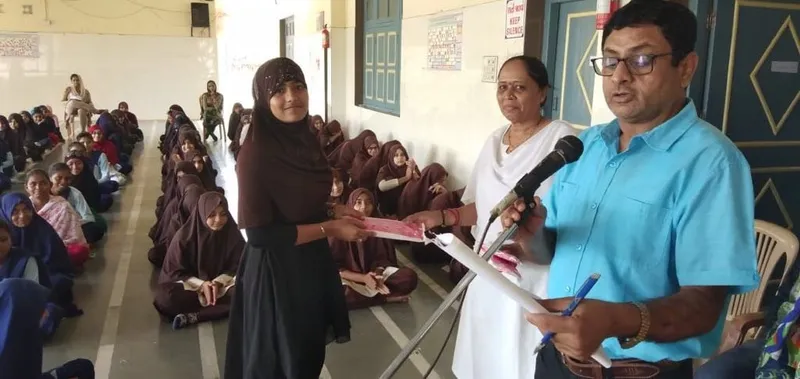
There are many more such village-level heroes that are doing incredible work in this area but it is not possible to mention all of them here due to the paucity of space. But what is a matter of great assurance is the fact that a social challenge of yesterday has become a flourishing enterprise of today, leading to empowerment of women. It is indeed a silent revolution, creating a resurgence in #StreeSwabhiman.
Saurabh Kumar is an IRS officer working in the Ministry of Electronics and Information Technology. These are his personal views.
(Disclaimer: The views and opinions expressed in this article are those of the author and do not necessarily reflect the views of YourStory.)







